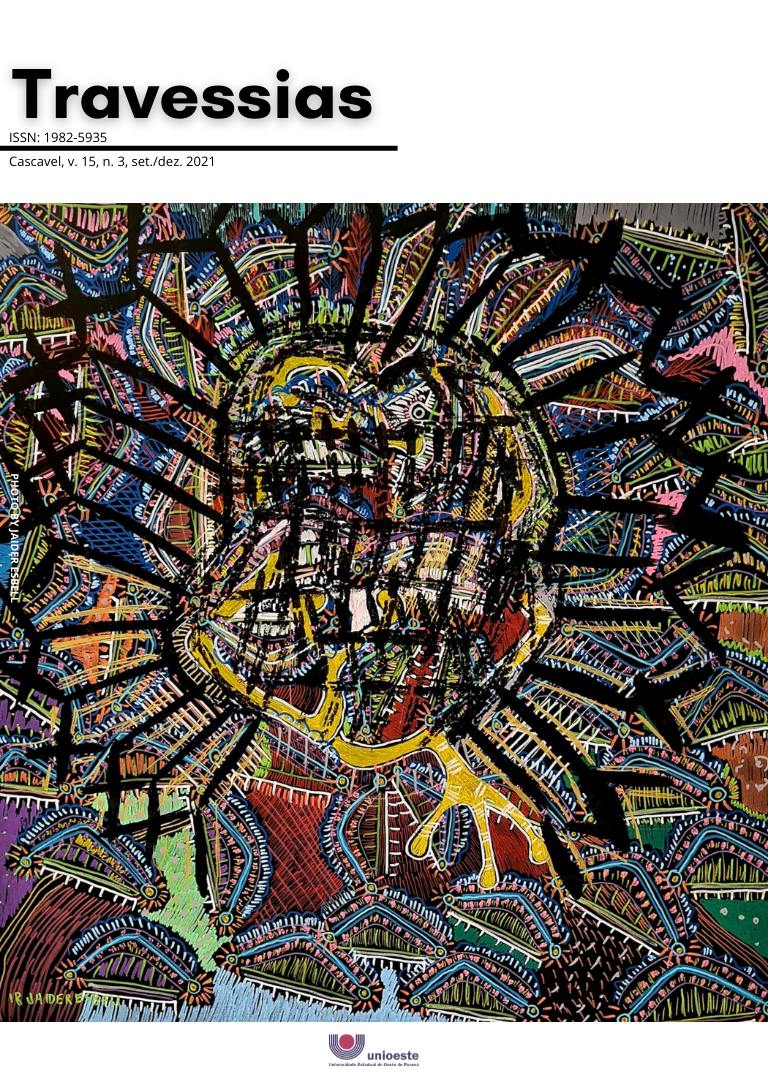Memory as a structural process in the short story “The Laughing Man” by J. D. Salinger
DOI:
https://doi.org/10.48075/rt.v15i3.27505Keywords:
Short story, Memory, SalingerAbstract
Studying the narrator of the short story “The Laughing Man” (2019) by J. D. Salinger, this paper aims to analyse the way in which the contradictions in the narrative allows the reader to see the gaps in the memory of the one narrating, indicating a implicit wish to structure a unknown past through the narrative act. This will be studied along with the specificites of the literary language, observing the instances in which the memorialistic discourse and literary discourse overlap, allowing unique possibilities when representing not only the memories themselves, but also the way the narrator has access to these memories and how new ways of reading come from that. The paper is organized starting with as introduction, in which Salinger’s works are contextualized, a theorical discussion divided between two main categories – the relation between memory and literature, focused mainly in Henri Bergson (1999) and Giorgio Agamben (2014)/ previous studies about Salinger’s narrators, coming mainly form André Ferreira Gomes dos Santos (2013) and Adolfo Jose de Souza Frota (2008) – and a analysis in which the aspects we intend to study will be presented as they appear in the narrative, following a linear approach to the work. These theorical lines, added to the adopted approach, allowed us the interpretation that there is a double denial by the work’s narrator, which manifests itself in a thematical and express manner, as well as in a structural way, operating as a organizing principle to the events of the narrative.
Downloads
References
AGAMBEN, Giorgio. O último capítulo da história do mundo. In: AGAMBEN, Giorgio. Nudez. Tradução de Davi Pessoa Carneiro. Belo Horizonte: Autêntica Editora, 2014. p. 163-167.
BERGSON, Henri. Matéria e memória. Tradução de Paulo Neves. 2. ed. São Paulo: Editora Martins Fontes, 1999.-
CARVALHO, André Ferreira Gomes de. Sensibilidade e Observação Social em Nine Stories de J. D. Salinger. 2013. 188 f. Dissertação (Mestrado em Letras) – Programa de Estudos Linguísticos e Literários em Inglês, Departamento de Letras Modernas, Universidade de São Paulo, São Paulo, 2013.
FROTA, Adolfo Jose de Souza. A influência das filosofias alternativas na vida e na literatura de J. D. Salinger. Publicatio UEPG, Ponta Grossa, v. 16, n. 02, p. 323-334, 2008.
SALINGER, Jerome David. Nove histórias. Tradução de Caetano W. Galindo. São Paulo: Todavia, 2019.
SALINGER, Jerome David. O apanhador no campo de centeio. Tradução de Caetano W. Galindo. São Paulo: Todavia, 2019.
STEVENSON, Robert Louis. Um humilde protesto. In: BEDRAN, Marina. A aventura do estilo: ensaios e correspondência de Henry James e Robert Louis Stevenson. Rio de Janeiro: Rocco, 2019, n.p.
TODOROV, Tzvetan. O que pode a literatura? In: TODOROV, Tzvetan. A literatura em perigo. Tradução de Caio Meira. Rio de Janeiro: DIFEL, 2009. p. 73-82.
RAMOS, Danielle Cristina Mendes Pereira. Memória e literatura: Contribuições para um estudo dialógico. Linguagem em (Re)vista, Niterói, , v. 6, n. 11/12, p. 92-104, 2011.
Downloads
Published
How to Cite
Issue
Section
License
Copyright (c) 2021 - Authors keep the copyright and grant the journal the right of first publication, with the work simultaneously licensed under the Creative Commons Attribution License (CC-BY-NC-SA 4.0), which allows sharing the trial with acknowledgment of authorship and initial publication in this journal.

This work is licensed under a Creative Commons Attribution-NonCommercial-ShareAlike 4.0 International License.
Creative Copyright Notice
Policy for Free Access Journals
Authors who publish in this journal agree to the following terms:
1. Authors keep the copyright and grant the journal the right of first publication, with the work simultaneously licensed under the Creative Commons Attribution License, which allows sharing the trial with acknowledgment of authorship and initial publication in this journal.
2. Authors are authorized to take additional contracts separately, for non-exclusive distribution of the work version, published in this journal (eg publish in institutional repository or as a book chapter), with acknowledgment of authorship and initial publication in this journal.
3. Authors are allowed and encouraged to publish and distribute their work online (eg in institutional repositories or on their personal page) at any point before or during the editorial process, as this can generate productive changes, as well as increase both impact and citation of the published trial (See The Effect of Free Access).
Creative Commons License
This work is licensed under a Creative Commons Attribution–NonCommercial-shareaswell 4.0 International License, which allows you to share, copy, distribute, display, reproduce, completely or part of the work, since there is no commercial purpose, and authors and source are cited.



